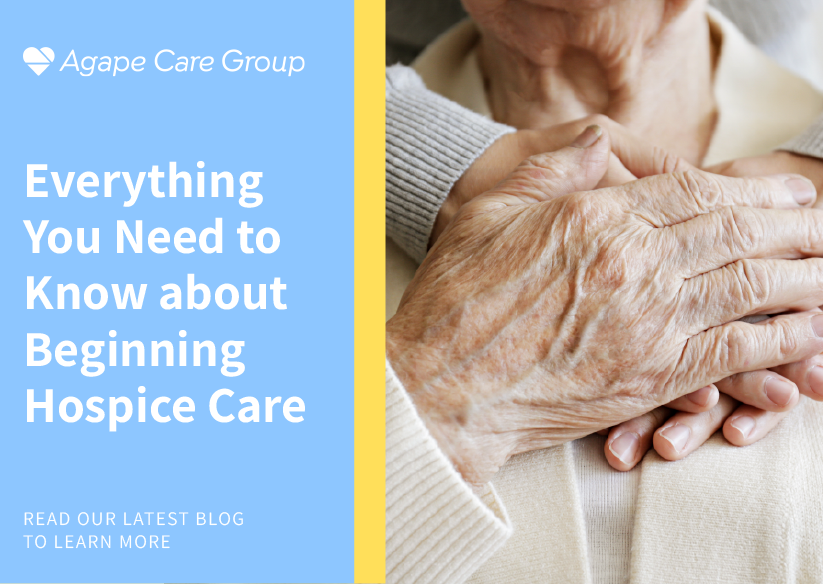Hospice Care
Overview
Hospice services are available to individuals who choose to forgo curative treatment. The typical hospice patient has a prognosis or life expectancy of six months or less, if the illness follows its expected course. Hospice offers help and support to the patient and their loved ones.
Your Care Team
Registered
Nurse (RN)
Registered
Nurse (RN)
Provides care including assessment, planning, and evaluation of patient needs. Maintains open communication between the physician and hospice team.
Certified Nursing
Assistant
Certified Nursing
Assistant
Helps with personal needs such as feeding, bathing, dressing, basic housekeeping and companionship.
Medical Social
Worker
Medical Social
Worker
Helps make decisions about care options available in a patient’s community, provides guidance on advance care directives, financial concerns, and other emotional needs.
Hospice
Physician
Hospice
Physician
Provides medical direction to the team.
Chaplain
Chaplain
Available for nondenominational spiritual support and guidance that honors the patient’s beliefs and values.
Grief & Loss
Counselor
Grief & Loss
Counselor
Provides support throughout the grief experience, maintaining contact with the patient’s caregivers and loved ones.
Volunteer
Volunteer
Available to support in a variety of ways including personal care, errands, light housekeeping, reading, assistance with meal preparation and companionship.
Making the Decision
Is Hospice the Answer?
Choosing hospice care is not easy, but when you decide it’s the right choice for your family, you give us the privilege to help you through your journey. Our goal is to help every patient live each day with love and dignity and as pain-free as possible. To help determine if hospice is right for you or a loved one, we’ve developed this brief assessment. You should also consult the patient’s physician to discuss the best options.
Take the quiz
Quality Report
Agape Care South Carolina is focused on clinical excellence. The Centers for Medicare and Medicaid Services (CMS) measures hospice providers on care quality, and we exceed national averages in key areas.

Family Satisfaction of Care
Composite Score

Patients who got an assessment of all 7 Hospice Item Set quality measures at the beginning of hospice care

Percentage of patients getting at least one visit from a registered nurse, physician, or nurse practitioner in the last three days of life
July 2019 - August 2020
Inpatient Hospice Care
Hospice Houses
When a patient’s medical needs exceed what caregivers are able to provide and in-home care is no longer an option, we have four hospice houses available throughout the state. These houses are a family-like environment where patients receive state-of-the-art medical care and pain and symptom management.


Care for Our Heroes
We Honor Veterans
At Agape Care, we’re committed to meeting the unique needs of veterans who are facing advanced illness. Through We Honor Veterans, a program of the National Hospice and Palliative Care Organization (NHPCO) in collaboration with the Department of Veterans Affairs (VA), we are better able to honor and support our veterans and their families.
We’re proud to announce that in 2020 we became a Level 4 Partner in the program, a progression that demonstrates a high level of commitment to veteran-centric care in the community.
Innovative Care
MUSE
Agape Care became the first hospice care provider in South Carolina to adopt predictive modeling technology from Muse. Leveraging Muse technology, Agape Care may more accurately predict end-of-life transitions to ensure the right level of care for patients in the last seven to 12 days of life.

FAQ
Hospice services are available to patients who no longer benefit from, or choose to forgo, curative treatment. The typical hospice patient has a life expectancy of six months or less, if the illness follows its expected course. Most patients receive care at home or in a home—like setting such as a nursing home or assisted living community. Services are provided by a team of trained professionals who provide medical care and support services, not only to the patient but also to the patient’s family and caregivers as well.
Agape Care seeks to provide hospice services that enable you to focus on days filled with life instead of illness. The four levels of hospice care are: routine home care, respite care, continuous care, and general inpatient care. We can provide services wherever the patient lives, whether that’s a nursing home, assisted living community, hospital, or a patient’s own home.
Palliative care and hospice care both provide comfort to patients by helping them manage pain and other symptoms. Both forms help support patients and their families and look to meet their physical, emotional, and spiritual needs. Although palliative care and hospice care share several important similarities, there are also important distinctions between the two.
Palliative care can begin at diagnosis and be administered alongside treatment. Hospice care is compassionate care that prioritizes the quality of life for patients with a life expectancy of six months or less. Relief-based rather than curative, hospice care helps patients manage pain and other symptoms, with an emphasis on providing dignity and supporting a peaceful end-of-life experience.
While the decision to begin hospice care isn’t easy, keep in mind that hospice care is about improving quality of life for more meaningful time with loved ones. Patients who may benefit from hospice care are those in the final stages of chronic lung disease, congestive heart failure, AIDS, cancer, cardiovascular disease, Parkinson’s disease, Alzheimer’s and dementia, and other life limiting, terminal illness.
Below are some signs it might be time for you to consider hospice care:
- Frequent hospitalizations or trips to the ER
- Recurrent infections
- Uncontrolled pain, shortness of breath, nausea, or vomiting
- Decreasing alertness or ability to focus
- Inability to perform tasks of daily living without help
- Increased sleeping or confusion
- Quick decline in health, even with aggressive treatments
If the above signs apply to you or a loved one, it may be time to consider hospice care.
Yes, we will work closely with the attending medical professional to help you or your loved one receive the care that’s needed.
All members of each Agape Care care team work together, utilizing their special training to meet the needs of the patient, their caregivers, and loved ones.
Hospice offers help and support to the patient and their loved ones, 24 hours a day, seven days a week. For hospice patients, help is just a phone call away. The hospice care team is an interdisciplinary group composed of a nurse, hospice aide, social worker, chaplain, volunteer, and other members of our team. The care team works closely with your providers and physician to manage your care.
Commercial insurance as well as Medicare and Medicaid are accepted by Agape Care, with coverage varying by payer source. Payment for services not covered by insurance is based on the patient’s or family’s ability to pay. It is our intent that ability to pay not be a barrier to receiving care. If needed, a financial assessment may be requested to assess eligibility for financial assistance.
Contributions from individuals, foundations, corporations, communities of faith, and civic organizations help us to care for everyone who needs our services, and to provide valued programs beyond those covered by insurance — such as grief care and community education.
Please ask your insurance provider for details regarding your coverage.
The emotional and psychological consequences of losing a loved one can never be underestimated. Grief support is designed to help you cope with and process your residual feelings of loss. Our grief support program encompasses a range of counseling services for friends and family members who have lost a loved one, including one-on-one and group counseling. Within five days of a loved one’s passing, we contact the family to do a grief assessment and determine how we can best support them. We follow families for at least 13 months after their loved one passes — and longer if they need it — to ensure they know they have a support system in place.
Yes, chaplains and spiritual support services are available. We know that end-of-life illnesses can often cause spiritual and emotional distress for both patients and families. Our hospice chaplains are available to encourage, offer feedback, and listen as patients and their family members cope with the painful and sometimes confusing issues related to end-of-life care. Our chaplains offer practical and spiritual guidance during this difficult time without enforcing religious boundaries. The goal is to offer spiritual support within the framework of your belief system.
Agape Care is proud to provide care in all 46 counties in South Carolina. If you or a loved one are in need of comfort care for a life-limiting illness, our team is prepared to walk alongside you to meet your needs. We’re with you no matter where you are.
Resources
Inquiry Form
Need More Information
One of the hardest decisions families and caregivers can make is whether to ask for hospice care for a loved one with a life-limiting illness. This time can be emotional and uncertain, and many families don’t realize that placing loved ones into professional treatment can have benefits for the patient as well as the whole family. One of the most shared sentiments from families is that they wish they had chosen hospice care sooner. If you have questions or would like a consultation, please complete this form and a member of our team will connect with you.









